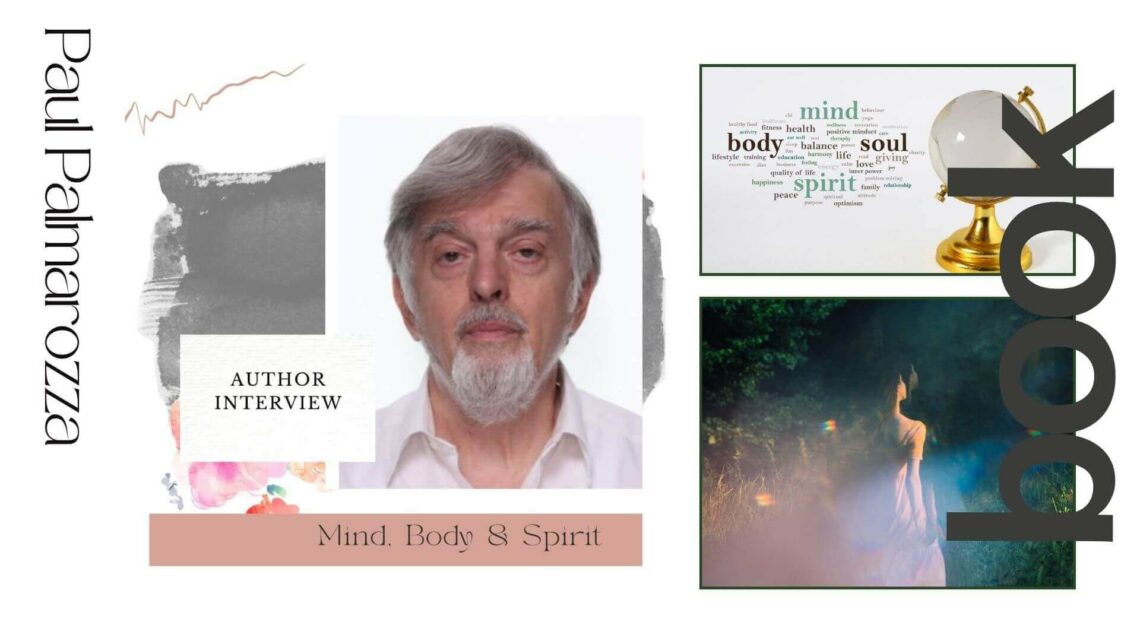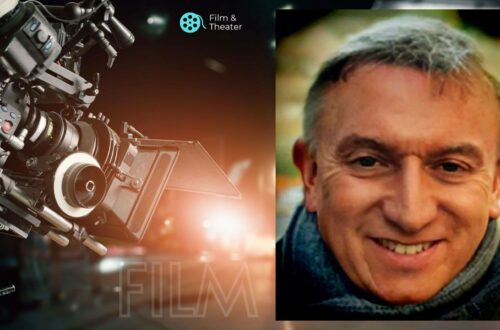
Interview With Paul Palmarozza
The stillness of a silent retreat as a young man set businessman, teacher, author and philosopher Paul Palmarozza on a remarkable journey of discovery, a journey which has uncovered useful knowledge which could change how we all live our lives going forward.
Paul was brought up in New Jersey, where he had what he describes as a ‘good Christian upbringing’. “I remember I used to go to Catholic Sunday school and we had a teacher, a nun, and one Sunday I said: ‘Sister, next Sunday after class there is a Cub Scout Jamboree (I was in the Cub Scouts) and it’s going to be held at the Methodist Church. She said ‘You can’t go’.’ Paul was confused as it was a Scout’s meeting, not a religious service. Paul went anyway and found the Methodists were not trying to convert him.
The experience of the rigidity of faith structures in the West became a subject of concern as he grew up. It did not undermine his spiritual belief in Christianity but made him more conscious of the rules and regulations governing religious organisations. This well-accepted view by Western religions that ‘I am right’ and ‘You are wrong’ has manifested in a huge number of Christian sects globally. It became part of his great study on cultural cycles, which if its findings are accepted, can help change the way that we view our world and our cultures.
Paul’s parents were first-generation Italian Americans and their families had to work hard. Times changed and when Paul’s sister and he grew up in the 1950s, it came at a time when things were open for the taking, there was social and economic mobility, and the world was moving in a progressive, upward direction, or so it appeared. He said: “I remember sitting with my sister on the bus when I was about 13 and she was 11. I said ‘Linda, isn’t it great that we are in a place where anything is possible, in America anything is possible.” That was the atmosphere of that time, but it also created a very competitive environment. Even early on you had to win; good grades at school, beat others in sports, and have lots of friends. Losers were less.”
Paul attended a Catholic High School, Seton Hall Prep, a well-established school that was founded in 1856. He said: “I received a balanced education; good intellectual studies, good sports, some religious studies and many friends. We would go to mass every Wednesday which was good as it came at a crucial time in my life-the teenage years. I am still in contact with many of my fellow students, 60 years later.”
Around this time of great development for Paul, his uncle asked him if he would like to attend a silent retreat, something which had a profound effect on the young man. “It was a weekend retreat and I thought that I would do him a favour by going. It was at a Jesuit monastery where 100 American men remained silent for a weekend, not an easy task. I connected with the silence and there was such clarity of mind and inner peace that I went with my uncle every year while I was still living in the States.”
Paul loved mathematics and numbers and was told by his teachers that he should be an engineer. So he went to study for a degree in the subject at one of the top Engineering Colleges in the US, NJIT, with classes 7 hours per day and 2-3 hours of homework each evening. A good discipline was established which proved very beneficial going forward.
“This engineering degree turned out to be like gold in the 1960s and upon graduation our class each averaged about eight or nine job offers. I took a job with a small computer firm in the Midwest of the United States. My father, who had never been more than 100 miles from where he was born in Newark, just couldn’t understand that! I had job offers from General Electric, IBM and other big companies, but something in me, an intuition, guided my decision. I was employee number 2655 and when I left 16 years later there were 40-50,000 employees. I learned to trust the quiet inner voice which has helped guide other important decisions in my life.”
Paul wanted to work with people so went into the sales and marketing side of the business. He realised that his technical education put him in a good position for success. He was assigned to work in Philadelphia as a sales representative by the time he was 25 he was managing a regional office of the business.
All was well, but during a reflective moment at one of the silent retreats he would plot out a different life path. He said: “The words just arose in the mind– you will live in Europe by the time you are thirty.” He continued working and attended evening classes to earn an MBA degree at Drexel University. The company expanded and established a European Headquarters in Brussels. In 1972 he asked to work in Europe and was offered a job in Brussels. That happened 3 months before his 30th birthday.
Within a month of arriving in Brussels Paul started attending a School of Philosophy, one of many branches of the School of Philosophy & Economic Science which was founded in 1937 in London. “I found a teaching all about the practical application of philosophy i.e. living the principles and not just an intellectual presentation of ideas. Most importantly, the teaching provided was a beautiful mix of Western and Eastern philosophy. That work became a life-changer.”
Paul also began teaching the courses at the school and has continued in that teaching role for 46 years, roughly the same amount of time that he has been meditating, which was offered as part of the school’s curriculum. This role as a teacher fulfilled a lifelong desire. Paul remembered that when he was young, people used to ask me what he wanted to be when he grew up. His repeated answer was ”I want to be a teacher.” He did not have a game plan, but it did work out that way.
During the time of work in Brussels in the 1970s, a vision arose regarding the application of computers in education and training. This led to a shift in his business focus to that of training and in the 1980s when he moved to London he started a new e-learning business which grew and in 2001 became a publicly listed company on the London AIM Stock Exchange. This business activity continued in parallel with philosophic study and teaching and helping to raise a family of two lively daughters. He retired from full-time employment in 2011 and turned his attention elsewhere. One important area which engaged him was writing books on Silence and values in business and life. The 4 main titles are Principles to Profits, co-authored with Chris Rees, In Praise of Silence, If I Can… Timeless Values for Today and Ethical Entrepreneur.
He said: “I have experienced the benefits of practical philosophy and meditation not only in myself but also in fellow students and those people that I have taught. It is the positive personal experience that has been my real motive for wanting to help others learn.”
Paul’s study on cultural cycles is an exemplary work and draws from Paul’s own experience, including historical and astrological studies which have resulted in a clear perspective on what is going on right now in world history and most importantly a good way forward. Paul and his team of researchers have studied in addition to Western culture, the Indian, Chinese and Arabic cultures and observed how a unique planetary alignment has set out a time frame which coincides with the periodic growth and decline of these cultures over the last 2500 years.
Paul said: “People in all of these cultures get to a stage where there is excessive focus on the material realm of life, where wealth, power, fame and pleasure become the predominant values and not such values as love, truth, justice and freedom which are the natural human values. At such times the spiritual realm of life and the importance of the family are ignored, as is care for nature. This inevitably results in increasing stress, tension and unhappiness which is present now in our Western culture. In response, there is growing interest in practices such as mindfulness, meditation, and yoga, which have come from the East initially, but there is also a rediscovery within the Western tradition of similar practices.”
Paul’s research and findings could all sound very bleak, but crucially the book provides a nine-step action plan to help effectively deal with the challenges. “The way forward is characterised by three stages. The first stage is that we must acknowledge that we are having a problem. Right now many people think this is the greatest most advanced culture ever, we are on a straight line upward as technology is growing and getting more sophisticated. We convince ourselves that everything is fine, but that is what also happened in Europe at the end of the Roman Empire. We do need to be open and learn lessons from the past, which is one of the main roles of historical study.”
“ The West today is part of a global entity and as such we are much more connected with other cultures. When the West was in its downward inner cycle from the 4th to the 13th century, we didn’t realise what was happening in places like China, where hundreds of years before the West they had invented the compass, gunpowder, and the printing press, the advanced technology of the day. We didn’t get there until the movement into our upward cycle in the 14th century. At this time there is growing energy and power in the other three cultures who have shown historically that they can be world leaders in many realms of life.”
“ For the second stage what we need is more quiet time. We need to quiet this continually moving mind, this mind that is focused on the material realm and that is where mindfulness, meditation, reflection and silence need to be practised more. It doesn’t mean we need to go into monasteries, but we need to establish these practices as an integral part of our daily life. The gift that contemplative practices bring is greater awareness, the mental space to calm our emotional state so that we can make good, balanced decisions.”
Paul’s view of the next stage is, “As a tool for actual social change, the third stage, we need to live the natural values and serve the real needs of ourselves, family, community and society. A good example of a need that must be served is Climate Change.” To help support this stage, Paul has founded a not-for-profit Community Interest Company If I Can…, and then designed and developed a series of online values apps to communicate to people globally the important message about these values. A daily online email focuses on a different value every week offering values-based guidance on how we think, how we relate to others and how we act. There is one series for everyday life and another specialising in values for the business world where corruption and greed have become all too common. He is also communicating the message of values in business as a Guest Lecturer at Regents University, London.
All is not lost, and it is clear that Paul has some hope for the future, particularly in the younger generation who he sees as being more open and ready to enact social change. They have seen the results of excess, they have seen that money is not going to bring happiness and that all is not well.
“When I was in the final stages of writing this book, I read Plato Tackles Climate Change and began to appreciate more fully the catastrophic implications if we continue to abuse nature. The younger people are much more willing to acknowledge this and to start doing something to change the situation. Help is needed to focus this young energy in the right direction. The right direction is the service of important needs without personal claims.2“





